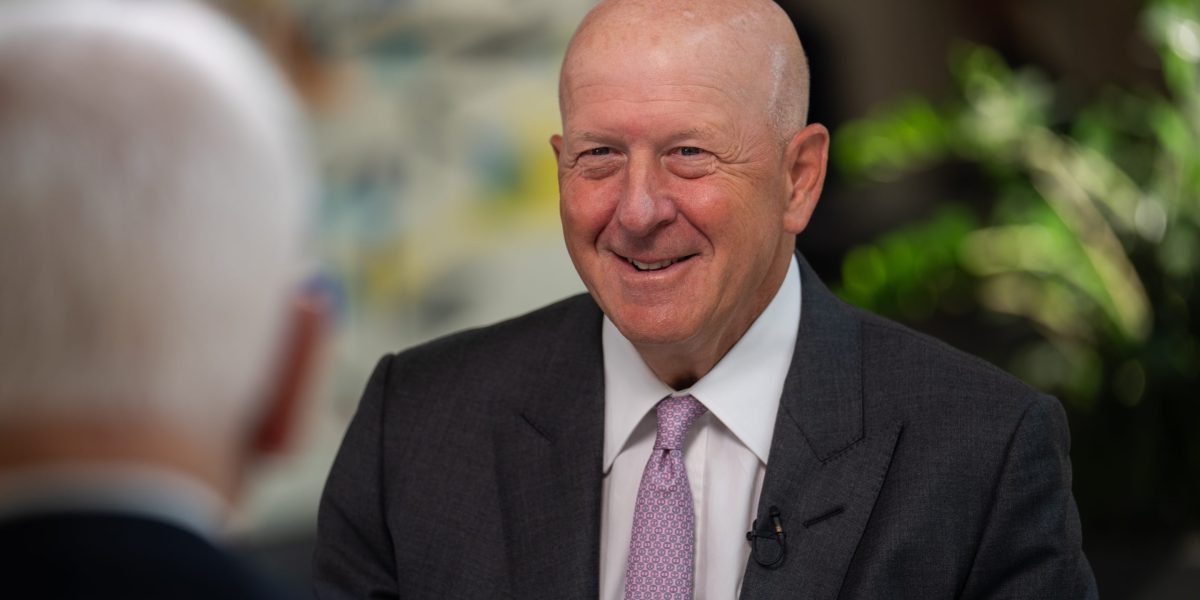Goldman Sachs Group Inc. is looking to hire dozens more workers in its new Birmingham office as part of the Wall Street bank’s plans to expand in lower-cost European cities outside traditional financial hubs such as London.
The New York-based firm first opened an office in Birmingham in 2021 with 30 people and now employs about 400 in Britain’s second-largest city. After this year’s relocation to new premises that could house as many as 1,000 staff, the company has room to attract more local talent, according to Gurjit Jagpal, Goldman Sachs’ global head of investment banking engineering and the local office chief.
The UK has “exceptional universities, but not everybody lives in London, or aspires to live in and around London,” Jagpal said in an interview this week. Coming to Birmingham has been “very much a talent play,” he added.
The widening of Goldman Sachs’ footprint in Birmingham underscores how Chief Executive Officer David Solomon is seeking to reshape his operations geographically while reining in expenses by placing thousands of jobs in cheaper locales. The financial-services firm plans to cut a few hundred jobs as part of an annual cull of low-performing staff, Bloomberg News reported last month.
Goldman Sachs has been adding offices in a number of what it calls “strategic locations” globally, including places like Warsaw, Dallas and Bengaluru, formerly known as Bangalore. The company had a headcount of 44,300 as of end-June. Across Europe, Goldman Sachs has offices in locations including Prague, Athens, Dublin, Bucharest and Stockholm, according to its website.
Rivals such as JPMorgan Chase & Co., Citigroup Inc., Bank of America Corp. and Bank of New York Mellon Corp. have also been hiring hundreds of cheaper and skilled graduates outside of London. Their expansion has come as a boost to cities such as Birmingham, which has struggled with a high rate of youth unemployment and a financial crisis. The West Midlands city’s council declared itself bankrupt last year.
Finance and related services employ more than 2.4 million people in the UK, lobby group TheCityUK said in a report on Wednesday, based on the latest available figures from 2022. London is by far the biggest hub, with about 837,000 of those jobs, but cities like Birmingham, Edinburgh and Manchester each employ about 50,000 people working in the industry.
Despite Brexit, Goldman Sachs renewed its commitment to the UK about five years ago by opening a new building — its European investment banking headquarters — at Plumtree Court in the City of London. Today, that office employs some 6,000 workers.
Goldman Sachs’ website currently has dozens of job listings for engineering, compliance, risk and human resources functions in its Birmingham office. Occupying four floors in the city’s One Centenary Way building, the new facility is just a few minutes walk from the offices of HSBC Holdings Plc, whose UK bank is based in the city, and Deutsche Bank AG, which operates a foreign-exchange and rates sales desk there.
Goldman Sachs’ presence in Birmingham is “pivotal to what we want to do here in developing a tech-based economy and creating new jobs for the future,” said Richard Parker, the Labour party mayor of the West Midlands region.
The UK needs about £1 trillion ($1.3 trillion) of investment over the next decade to put the economy on track to achieve 3% annual growth in real wages and real per capita GDP, according to a report by the Capital Markets Industry Taskforce published earlier this month. The new Labour government under Prime Minister Keir Starmer is planning to hold an investor summit next month, betting the event could bring in some of the money.
“We need to do more to attract businesses like Goldman Sachs,” Parker said. To do that, “we need to sell the region better.”
Other banking giants have been hiring hundreds of workers in cities other than London as well, with the expansion partly fueled by the need for more back-office functions amid increasing regulations around the world.
JPMorgan in April opened a new office for its 2,600 employees in Glasgow, one of the Wall Street firm’s global technology hubs. Barclays Plc opened a tech campus in the Scottish city in 2021, which now employs more than 6,000 people.
Investment bank Panmure Liberum, meanwhile, this year set up a new team in Cambridge that helps health-care and life-sciences companies raise capital. Mid-cap focused rivals are looking at similar moves to avoid being too focused on London-based businesses.
The pool of talent available in the smaller cities is among the biggest attractions, said Jagpal.
“A large part of the graduate talent starts their careers here, so we wanted to tap into that,” Jagpal said. “They can do well wherever they are and have a global impact.”
